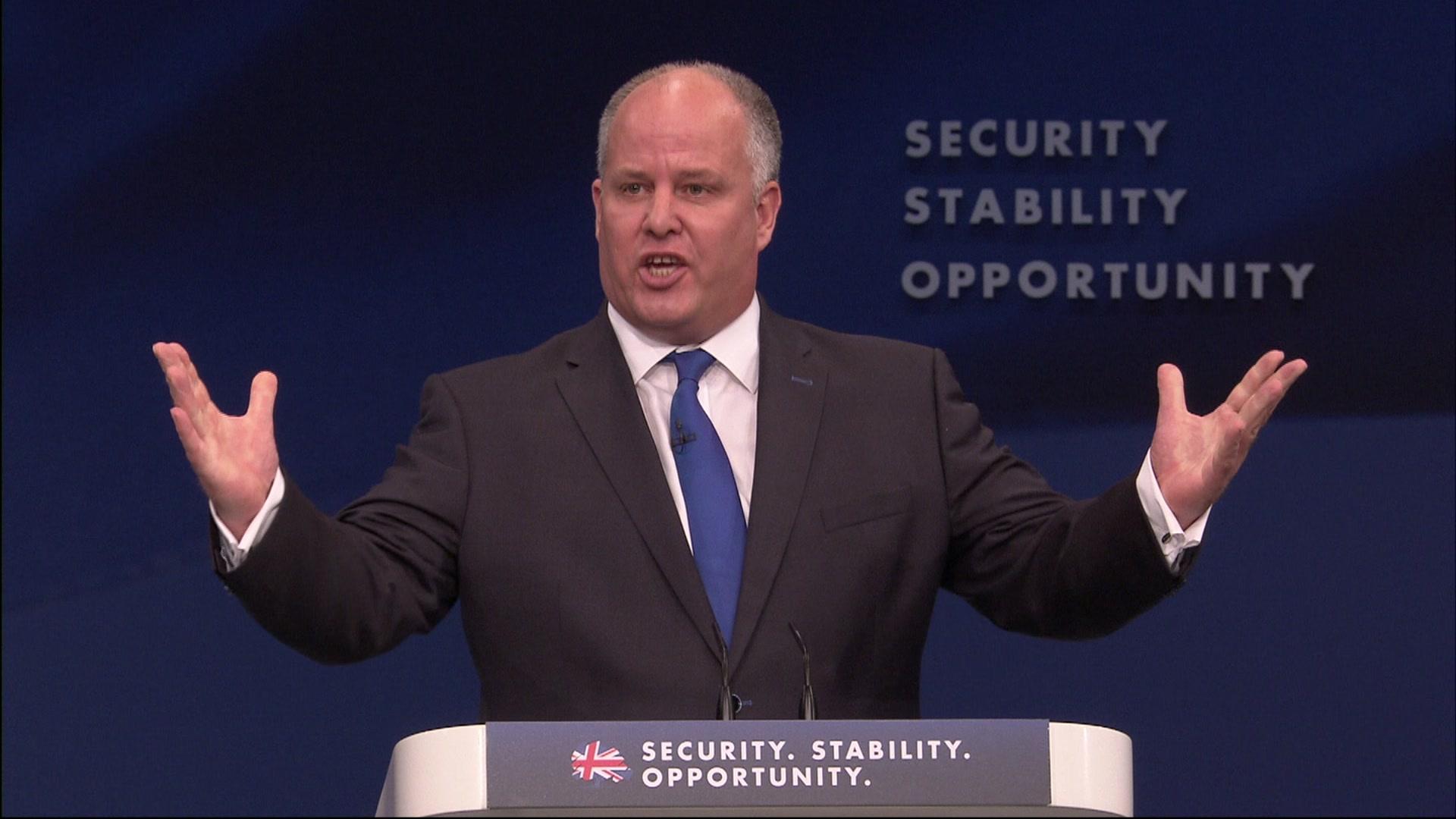Doing a "Boris"
- Published
I won't be broadcasting these thoughts as my voice finally cracked live on Good Morning Wales this morning after battling against a cold at the Labour conference in Llandudno all weekend.
However, it wasn't quite as dramatic as the coughing problems experienced by Nia Griffith, who surely deserves some kind of medal for the way she battled her way through her speech as shadow Welsh secretary.
Anyway, away from Labour, as I write this, four out of the 11 Welsh Tory MPs have come out in favour of leaving the EU.
And what's just emerged is that the leader of the Welsh Conservatives, Andrew RT Davies, has also "done a Boris".
Difficult backdrop
This has potentially big implications for the assembly campaign because I find it hard to believe that Labour, and the other parties for that matter, won't try to use it against him.
Carwyn Jones has already portrayed the assembly contest as coming down to a straight question of who you want as First Minister: him or Andrew RT Davies.
Now it's surely a matter of time before an opponent says he shouldn't be First Minister because he wants to take us out of the EU.
Whatever the merits of that criticism, the main point I'm making here is that the EU debate will then become a central part of the assembly debate as well.
If he'd come out in support of the Prime Minister, it would have meant all of the party leaders, other than UKIP of course, would have had the same message and as a result they'd have cancelled each other out.
They would then have had a fighting chance of separating the two campaigns. This changes the rules of the game. Let's see how the other parties react.
Whatever way you look at it, this is a difficult backdrop for the Tories to operate in as we build up to May 5.
Doorstep challenge
The next time the Prime Minister comes to Wales to try to boost Andrew RT Davies' campaign to become First Minister, he'll be doing so with a man who disagrees with him on a fundamental issue.
Frankly, this is a fact that David Cameron has to face wherever he looks in the Conservative party, but it's in Wales were it's looking to win an election.
It will be interesting to see how all of this plays out on the doorstep when prospective AMs from all of the parties want to talk about policies on health and education, when in many cases the voters will be more interested in what they have to say about Brussels.
It's early to say but it appears that the job of campaigning on the EU question by the main political parties, from now until May 6 at least, will largely be carried out by MPs or figures who won't be active in the assembly campaign.
That's the intention of the Conservatives, Labour and Plaid Cymru, at least at this stage.
There's not going to be any blanket ban on AMs getting involved but it'll be discouraged by the campaign co-ordinators.
Misplaced concern
The question here is how realistic that will be when there will be no such reservations expressed by UKIP, and their assembly candidates will be getting stuck into the referendum campaign with no such qualms.
Once the referendum campaign gets underway good and proper, as much as anything it will be a huge learning exercise for everyone.
It goes without saying there are huge misconceptions out there. My daughter has been worried that we'll have to stop eating Italian food in the event of a Brexit.
That's the misplaced concern of an eight year old, but it was an adult in Merthyr who told me last week he was worried about the funding of his mobility scooter if the UK was to withdraw.
I don't want to sound patronising here - we've all got plenty of learn, including political journalists.
My unscientific "date in the diary" theory means that people will start to take notice now we know the exact day for the referendum, and that includes building up knowledge about the facts and figures involving our membership.
- Published22 February 2016
